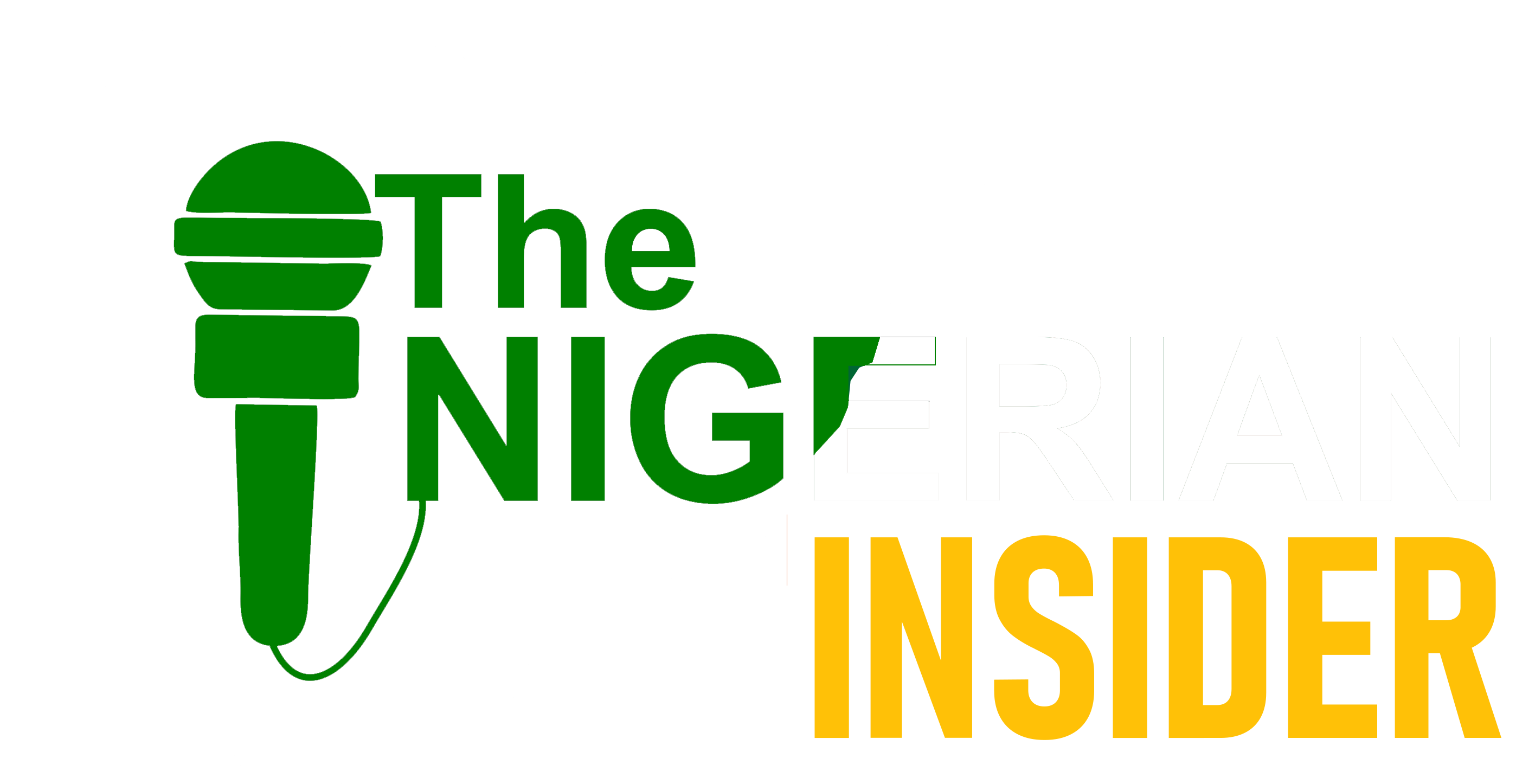Business
In Nigeria, poverty compromises dignity – By Emmanuel Onwubiko


Around the late 1980’s or early 1990’s, the legendary American Pop singer: Michael Jackson organised a collection of globally reputable musicians of his era, and they jointly performed a concert in which the major track or rather the essence of the concert was an admonition on the entire human race to make the World a better place for each and every member of the human race. These largely American musicians were moved by the famine that afflicted Ethiopia in Africa and were then moved to appeal for immediate universal action to stop hunger, poverty and deprivation. That track was iconic and evergreen. What that song stands for most analysts is a call for humanity to ensure that each one of us and especially those at the helms of the affairs of their nations, utilise the resources and manpower available to enforce the respect for the DIGNITY OF THE HUMAN PERSON AS THE CORE OF THEIR NATIONAL LEGISLATION/LAWS.
This legendary song coordinated by the late Michael Jackson has an immediate impact for most of us here in Nigeria whereby bad governance has meant that a majority of the citizenry would experience on daily basis, the scale of material deprivation that would automatically lead to the denial of their well deserved human dignity.
There are also a plethora of recorded reports about the extent of poverty in Nigeria. One amongst the latest statistical evidence about the pervasive state of poverty and deprivation was the official data released in the year 2018 by the National Bureau of Statistics (NBS) that concluded that 133 million households in Nigeria are suffering from multidimensional poverty. From most development indices, the country is doing very badly. In the areas of employment and wealth creation, sustainable development, infrastructures, quality of life, Nigeria is lagging far behind most Countries that aren’t even half resource rich as Nigeria is. It is unbelievable that Malaysia and Singapore are not so well endowed with natural resources than Nigeria, the self-proclaimed giant of Africa, but fifty years down the line, Malaysia and Singapore have witnessed vast developments that have left Nigeria so much behind to the extent that scholars believe that Nigeria suffers from resource curse. But Nigeria does not suffer from resource curse but leadership curse, if you asked me. Towards the end, we will include the report on the winners of the year 2024 Nobel prize in Economics and how it was decided to demonstrate that the degeneration of respect for the dignity of the human person inevitably leads to lack of development for such a nation and Nigeria suffers same cruel fate.
There is therefore a consensus about the significant threats that pervasive, endemic and multidimensional poverty pose to most Nigerians, who are within this statistical bracket of poverty.
In this reflection, our focus is on how poverty compromises the observance of the fundamental provision of the human rights laws as enshrined in chapter four of the constitution of the federal Republic of Nigeria of 1999, which is dignity of the human person.
Specifically, section 34 of the Grund Norm provides that “every individual is entitled to respect for the dignity of his person, and accordingly: (a) no person shall be subject to torture or to inhuman or degrading treatment; (b) No person shall be held in slavery or servitude…”
The shocking thing is about Nigeria is that even when the aforementioned provision specifies respect to the dignity of the human person, the gross failure of governance which unleashes poverty on a wider scale amongst the greatest percentage of the citizens, means that the enjoyment of this right is endangered and compromised.
The most consequential effects of poverty includes severe malnutrition, food insecurity illness, child and elder abuse, drug dependence, high rate of disease , homelessness, depression, high rate of mortality eviction, high crime rate and violence ( https://ijols.com).
Besides, a reporter Adedoyin Ajayi, recently penned a piece on the consequences of the phenomenon of out of school children in Nigeria which this writer considers as a major leg of the inbuilt compromises against the constitutional prescription of respect for the dignity of the human person which is a universal, inalienable and a naturally endowed right that ought to be promoted and protected by government.
According to UNICEF, one in three Nigerian children is out of school. This totals about 10.2 million children at the primary level and about 8.1 million at the junior secondary school level. This damning statistic highlights the menace of out-of-school children in Nigeria. This unpleasant scenario is most evident in the northern part of the country. The 2021 Multiple Indicator Survey 6 (MICS 6) posits that Kebbi State (65%), Zamfara State (61%), and Bauchi State (61%) lead the way among states with highest out-of-school children. The causes of this phenomenon stem from an agglomeration of administrative, economic, and socio-cultural factors.
There are the problems of significant poverty levels and misconceptions regarding the benefits of education and schooling. In the northern part of the country, it is common to see girls married off at early ages owing to the belief that educating the girl child is an unprofitable investment, while boys are only sent to Qur’anic schools, with no other formal education. On the other hand, there are supply side factors also. Funding for education has fallen way short of UNESCO’s 26% budgetary allocation to education. This allocation has only crossed 10% thrice in the past 12 years. The poor implementation and enforcement of the Child Rights Act which mandates compulsory education for children for at least nine years has led to blatant disregard of education as a fundamental right of children. Furthermore, an insufficient level of qualified teachers exacerbates the issue.
The implications of out-of-school children have sinister effects for the children and country at large. Education-deprived children grow to become adults with limited economic and self-sustaining opportunities in future. Their lack of education puts a ceiling over them. They suffer from weakened self-esteem and a low status in the society. Worse still, their lack of education and enlightenment makes them easy prey for religious extremism and pawns for political violence.
Additionally, Nigeria suffers collectively. With a poorly-equipped labour force comes a significant unemployment level, thus leading to a higher crime rate. Regardless of colour, race, or class, the desire to exist burns within us. With limited economic opportunities available to out-of-school children, they can easily become adults who live by taking what they can get, by hook or crook.
The unchecked bane of out-of-school children can lead to severe manpower gaps and a critical shortage of skilled manpower. A nation rich in passive factors of production but deficient in active factors would struggle to achieve economic growth and development. Poorly-equipped human resources would inefficiently utilise the passive factors of production, the latest report from UNICEF averred.
Another leg of the historical and institutional compromises to the implementation of the fundamental right to the dignity of the human person, is the electoral heist which manifested in a colossal magnitude about few years ago which is the practice of buying and selling of votes by duly registered voters in Nigeria and facilitated by crooked politicians.
The tragedy is that any election in which winners paid their ways to those public offices, represents a very grave threat to governance because an electoral victory that is illicitly procured through illegal transactions, would inevitably lead to government by thieves who would elevate thievery into a national ideal.
This to me, constitutes perhaps the biggest compromise to the dignity of the human person now in Nigeria just as the fundamental cause of selling of votes by mostly poor Nigerians, is attributable to poverty of economy and poverty of the brains. The failure of the law enforcement agencies to confront and end this hydraheaded monster that poses significant risk to the survival of democracy, good governance and that which debases the right to respect for the dignity of the person in Nigeria, has compounded this national tragedy of our time.
But, why the bother on the declining respect to human dignity in Nigeria generated by poverty of millions of Nigerians, one may ask? The truth is that, a population that gives up her human dignity is a failed population and a population without ambitions, aspirations and dreams of national advancements. This is also why.
The fundamental pride of place of the Right to Dignity of the Human Person can’t be over emphasized. Moreso when this right is at the heart of human rights which is the belief that everybody should be treated equally and with dignity – no matter what their circumstances.
This, scholars emphasized, means that nobody should be tortured or treated in and inhuman or degrading way. It also means that nobody has the right to ‘own’ another person or to force them to work under threat of punishment. And it means that everybody should have access to public services and the right to be treated fairly by those services. This applies to all public services, including the criminal justice system. For example, if you are arrested and charged, you should not be treated with prejudice and your trial should be fair. This right is one of the most intrinsic rights of a man and can be seen as the determinant of personhood.
Article 1 of the Universal Declaration of Human Rights provides:
“All human beings are born free and equal in dignity and rights. They are endowed with reason and conscience and should act towards one another in a spirit of brotherhood.”
The concept of human dignity and personhood transcends the limitation of national constitutional provisions.
Section 34 of the 1999 constitution provides:
Every individual is entitled to respect for the dignity of his person and accordingly –
No person shall be subjected to torture or to inhuman or degrading treatment.
No person shall be held in slavery or servitude; and
No person shall be required to perform forced or compulsory labour.
To conclude, I must refer to this year’s economic sciences laureates – Daron Acemoglu, Simon Johnson and James Robinson – who have demonstrated the importance of societal institutions for a country’s prosperity. Societies with a poor rule of law and institutions that exploit the population do not generate growth or change for the better. The laureates’ research helps us understand why.
When Europeans colonised large parts of the globe, the institutions in those societies changed. This was sometimes dramatic, but did not occur in the same way everywhere. In some places the aim was to exploit the indigenous population and extract resources for the colonisers’ benefit. In others, the colonisers formed inclusive political and economic systems for the long-term benefit of European migrants.
The laureates have shown that one explanation for differences in countries’ prosperity is the societal institutions that were introduced during colonisation. Inclusive institutions were often introduced in countries that were poor when they were colonised, over time resulting in a generally prosperous population. This is an important reason for why former colonies that were once rich are now poor, and vice versa.
Some countries become trapped in a situation with extractive institutions and low economic growth. The introduction of inclusive institutions would create long-term benefits for everyone, but extractive institutions provide short-term gains for the people in power. As long as the political system guarantees they will remain in control, no one will trust their promises of future economic reforms. According to the laureates, this is why no improvement occurs.
However, this inability to make credible promises of positive change can also explain why democratisation sometimes occurs. When there is a threat of revolution, the people in power face a dilemma. They would prefer to remain in power and try to placate the masses by promising economic reforms, but the population are unlikely to believe that they will not return to the old system as soon as the situation settles down. In the end, the only option may be to transfer power and establish democracy.
“Reducing the vast differences in income between countries is one of our time’s greatest challenges. The laureates have demonstrated the importance of societal institutions for achieving this,” says Jakob Svensson, chair of the committee for the prize in economic sciences.
Emmanuel Onwubiko is head of the HUMAN RIGHTS WRITERS ASSOCIATION OF NIGERIA and was NATIONAL COMMISSIONER OF THE NATIONAL HUMAN RIGHTS COMMISSION OF NIGERIA
Business
Aliko Dangote Steps Down as Chairman of Dangote Cement | Former SEC Official Appointed as Successor
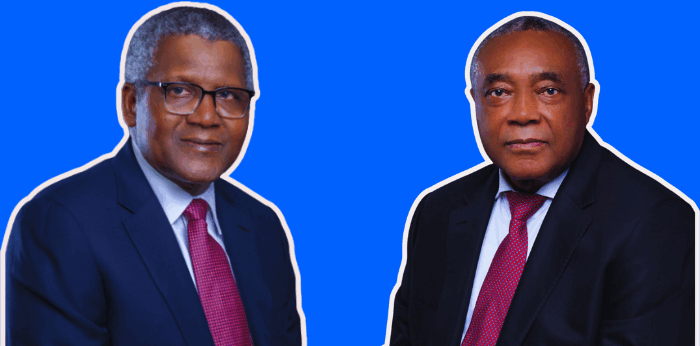
Dangote Cement has announced that Aliko Dangote, its majority shareholder and founder, has officially stepped down from his role as chairman of the cement company. On Friday, Anthony Chiejina, the chief officer for branding and communications at Dangote Group, revealed that Dangote has decided to retire from the position in order to dedicate more time to the Dangote Petroleum Refinery, as well as the petrochemical and fertilizer plants, and to strengthen government relations.
Chiejina has confirmed the appointment of Emmanuel Ikazoboh, an independent non-executive director, as the new chairman.
Additionally, the company spokesperson mentioned that Hajiya Mariya Aliko Dangote has been added to the board of directors, while Dorothy Ufot, also an independent non-executive director, has retired from the board.
“Renowned entrepreneur and founder of Dangote Cement Plc, Aliko Dangote, has announced his retirement from his role as Director and Chairman of the Board of Directors, effective July 25, 2025,” stated Chiejina. He is stepping down to concentrate more on the refinery, petrochemicals, fertilizers, and government relations to elevate the company’s five-year business goals.
The Dangote Cement PLC board has thus appointed Emmanuel Ikazoboh as the new Chairman of the Board of Directors. In this transition, Hajiya Mariya Aliko Dangote will also join the Board, while Prof. Dorothy Ufot has stepped down.
‘DANGOTE LEAVES A LEGACY’
Chiejina remarked that the billionaire is leaving a remarkable legacy as he departs from the board, highlighting how his vision and determination not only transformed his company but also revolutionized the entire cement sector, establishing it as the largest cement producer in Africa and the leading exporter of cement and clinker in Sub-Saharan Africa. “Aliko Dangote’s exceptional journey in the cement industry started with an ambitious dream: to make Nigeria and Africa self-sufficient in cement manufacturing. Through strategic investments in advanced plants and a commitment to local sourcing, he not only achieved that but surpassed it,” he noted.
Currently, Dangote Cement boasts a capacity of 52.0 million tons annually across the African continent, with Nigeria’s share at 35.25 million tons. Additionally, new greenfield projects are in progress in Côte d’Ivoire (3.0 million tons) and Itori, Nigeria (6.0 million tons), which will push the total capacity to 61.0 million tons upon completion later this year.
“Under his visionary leadership, Dangote Cement has achieved record revenue and Earnings Before Interest, Taxes, Depreciation, and Amortization (EBITDA) in its history. According to the unaudited results for the six months ending June 30, 2025, group revenue surged by 17.7% from ₦1,760 billion in the same period in 2024 to ₦2,071.6 billion, marking the highest revenue ever recorded by the company.
“The group’s EBITDA grew by 41.8% to N944.900 billion from N666.22 billion. EBITDA from Nigeria operations increased by 82.4% to N845.4 billion. Profit before tax rose significantly from N292.96 billion to N730 billion, reflecting a 149% increase, while profit after tax soared by 174.1% to ₦520.5 billion, compared to N189.90 billion for the preceding period.”
Chiejina highlighted that cement exports from Nigeria grew by 18.2% in the first half of the year, with 18 successful shipments of clinker to Ghana and Cameroon. “Aliko Dangote’s legacy will be measured by the millions of jobs generated, the infrastructure constructed, and the renewed faith in Africa’s industrial capabilities,” the spokesperson concluded.
“He has demonstrated that Africa can produce, compete, and excel on the global stage. Notably, subsidiaries under the Dangote Group contributed over N402 billion in taxes in 2024, solidifying its position as the top taxpayer in the nation.”
IKAZOBOH COMMITS TO COST-REDUCTION INITIATIVES
In his acceptance remarks, Ikazoboh expressed his honor in taking on the role and committed to maintaining the highest standards of leadership and commitment. He also outlined his intention to implement rigorous cost-reduction strategies to mitigate inflationary pressures and enhance competitiveness during his tenure.
Ikazoboh emphasized that the company would expedite initiatives to adopt alternative fuels and technologies, aiming to reduce dependency on fossil fuels and contribute to a more sustainable future. According to Chiejina, the newly appointed chairman previously served as the group chairman of Ecobank Transnational Inc. and began his career at Akintola Williams Deloitte.
Ikazoboh became the managing partner for francophone offices in Cameroon and Côte d’Ivoire before eventually serving as the managing partner for Deloitte in West and Central Africa until 2009. In 2010, Chiejina added, Ikazoboh was appointed by the Securities and Exchange Commission (SEC) as an interim administrator, tasked with implementing capital market reforms for the Nigerian Stock Exchange (NSE), now referred to as the Nigerian Exchange.
Business
2026 Deadline: Eight Banks Have Achieved New CBN Recapitalization Requirements – Cardoso
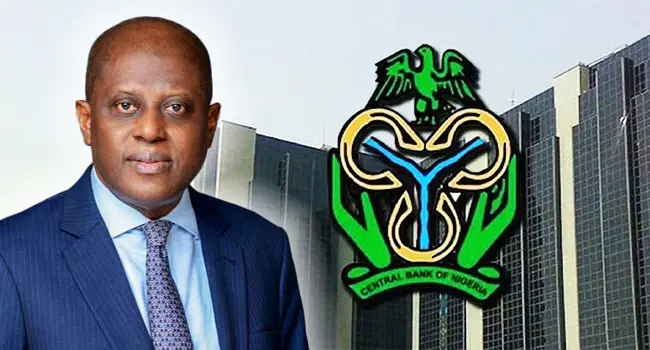
Mr. Olayemi Cardoso, the Governor of the Central Bank of Nigeria (CBN), has shared that eight commercial banks have successfully fulfilled the recapitalization mandates set forth by the central bank, while several others are steadily advancing toward the goal.
The CBN had previously established a 24-month timeline for recapitalization, starting from April 1, 2024, and concluding on March 31, 2026. According to this directive, banks with international licenses must maintain a minimum paid-up capital of ₦500 billion, national banks should meet a threshold of ₦200 billion, and regional banks are required to uphold at least ₦50 billion in capital.
Cardoso provided this update in Abuja during a press briefing following the 301st meeting of the Monetary Policy Committee (MPC) of the CBN. However, he did not disclose the names of the banks that have successfully met the requirements as of the time of this report.
Business
Otedola Strengthens Control over FirstBank with 40% Share Acquisition

Femi Otedola, the billionaire businessman, has gained significant control over FBN Holdings, the parent company of First Bank of Nigeria, following the acquisition of approximately 40% of its shares through a substantial off-market transaction on the Nigerian Exchange. The deal, which involved 17 negotiated trades at ₦31 per share, resulted in the transfer of about 10.43 billion shares of FBN Holdings, valued at over ₦324 billion. This acquisition, corroborated by trading data and capital market insights, represents a pivotal shift in the ownership of one of Nigeria’s oldest and most respected financial institutions.
Otedola’s acquisition comes in the wake of a protracted boardroom conflict involving previous major shareholders like Oba Otudeko and Hassan Odukale, who reportedly divested their shares to enable this transaction. With this purchase, Otedola emerges as the majority shareholder, granting him considerable sway over board deliberations and the strategic direction of the company.
The share price of FBN Holdings reacted favorably to the news, rising nearly 10% to settle at ₦32.20, which elevated the company’s market capitalization to over ₦1.3 trillion. Analysts interpret this development as a renewal of investor confidence and a potential precursor to assertive reforms under the new leadership.
However, FBN Holdings must promptly address the challenges set forth by the Central Bank of Nigeria’s directive for recapitalization. The CBN has mandated that all banks achieve a minimum capital base of ₦500 billion. As of June, FBN Holdings had reportedly accumulated ₦346 billion, indicating a shortfall of around ₦154 billion that needs to be reconciled to comply with regulatory standards.
Analysts caution that the real challenge lies ahead, especially concerning the bank’s non-performing loans, estimated to exceed ₦1 trillion. This ongoing debt concern, inherited from prior management, poses a significant obstacle to regaining full market confidence and achieving profitability.
In a related market update, Guaranty Trust Holding Company (GTCO) has made headlines by becoming the first Nigerian banking stock to surpass the ₦100 mark, closing at ₦101. This surge is attributed to the company’s robust Q1 performance and its dual listings, with profit before tax reported at ₦300.4 billion and new capital infusions facilitating expansion efforts.
Otedola’s re-emergence at the forefront of FBN Holdings is viewed as a strategic maneuver, reclaiming his position as the largest shareholder after losing it in 2021. His latest acquisition firmly establishes his control, and market observers are closely monitoring how his influence will shape the bank’s future.
The upcoming months will be crucial as FBN Holdings strives to meet the CBN’s capital deadline, enhance asset quality, and assure investors of its long-term viability under the new leadership.
-

 News10 months ago
News10 months agoNUJ FCT Council Mourns The Loss of Senior Journalist, Isaiah Abraham
-
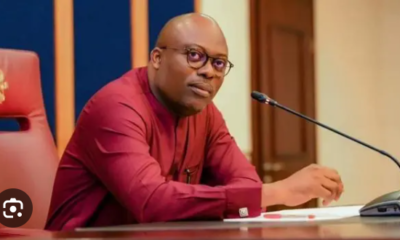
 News10 months ago
News10 months agoHURIWA Declares Governor Fubara’s Emergence as Divine, Urges Support for Rivers State’s Progress
-
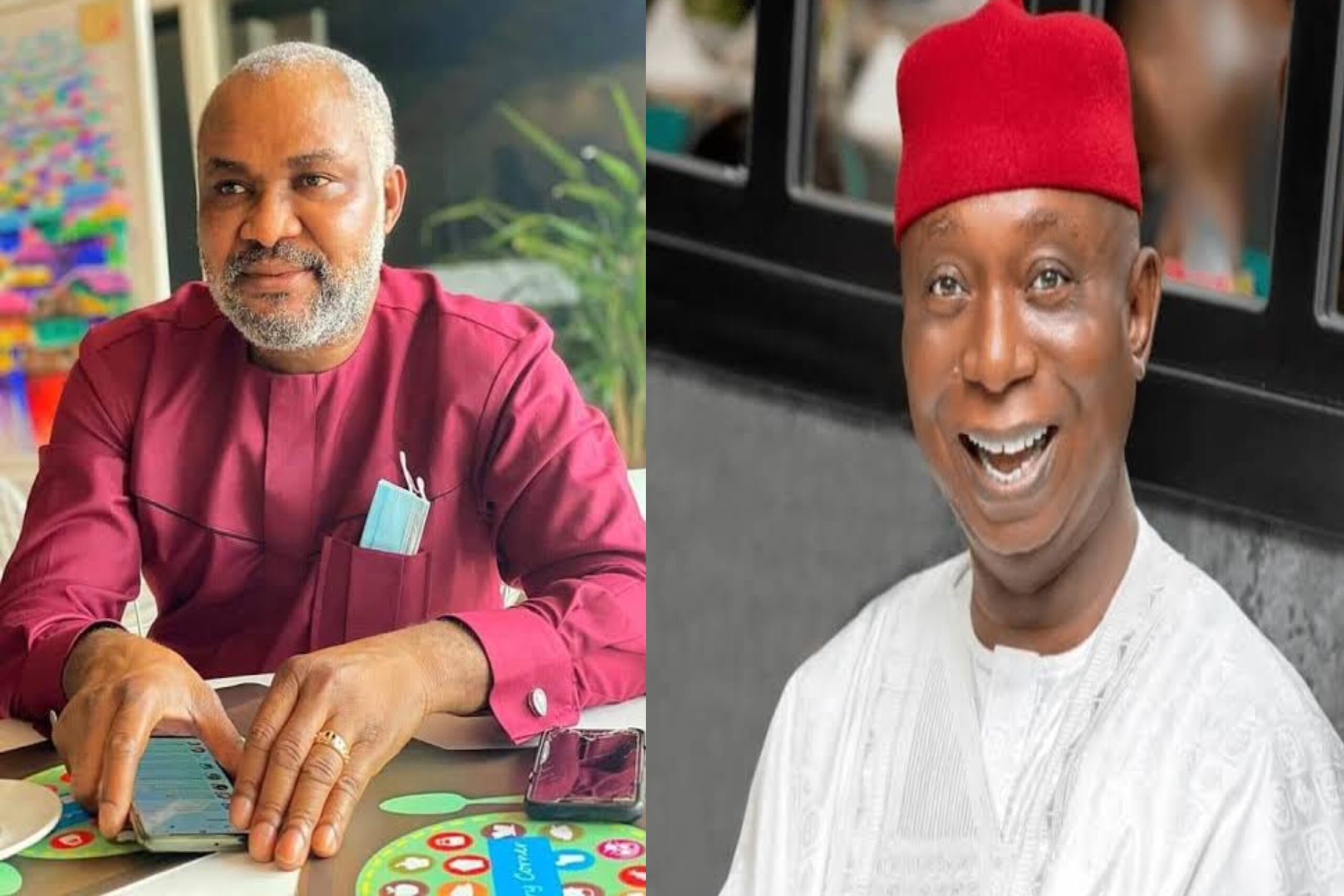
 News10 months ago
News10 months agoAnioma State as panacea to South-East marginalization – By Emmanuel Onwubiko
-

 Opinion8 months ago
Opinion8 months agoNIGERIAN WOMAN IN DIASPORA, CULTURAL SHOCKS – By Stacey Ukaobasi Onwuegbuchulam
-
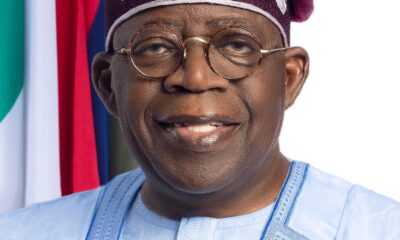
 News11 months ago
News11 months agoHURIWA Blames Serial Stampedes on Weaponized Poverty, Warns of Nigeria’s Rapid Decline
-
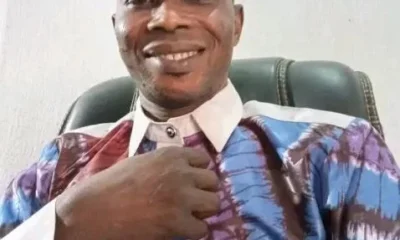
 News10 months ago
News10 months agoJealous Husband Stabs Nigerian Bishop To Death Over Suspicion Of Sleeping With Estranged Wife
-
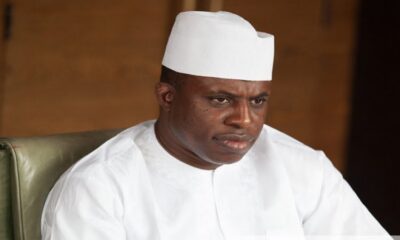
 News10 months ago
News10 months agoTinubu sympathizes with ex-speaker Bankole on the death of his mother
-
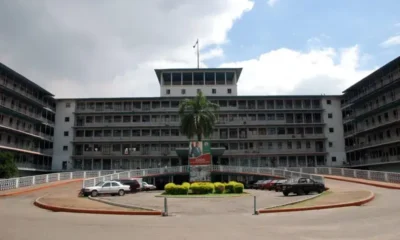
 Health8 months ago
Health8 months agoA complete list of 154 healthcare facilities across Nigeria that provide free emergency obstetric care and VVF (Vesico-Vaginal Fistula) surgeries.
